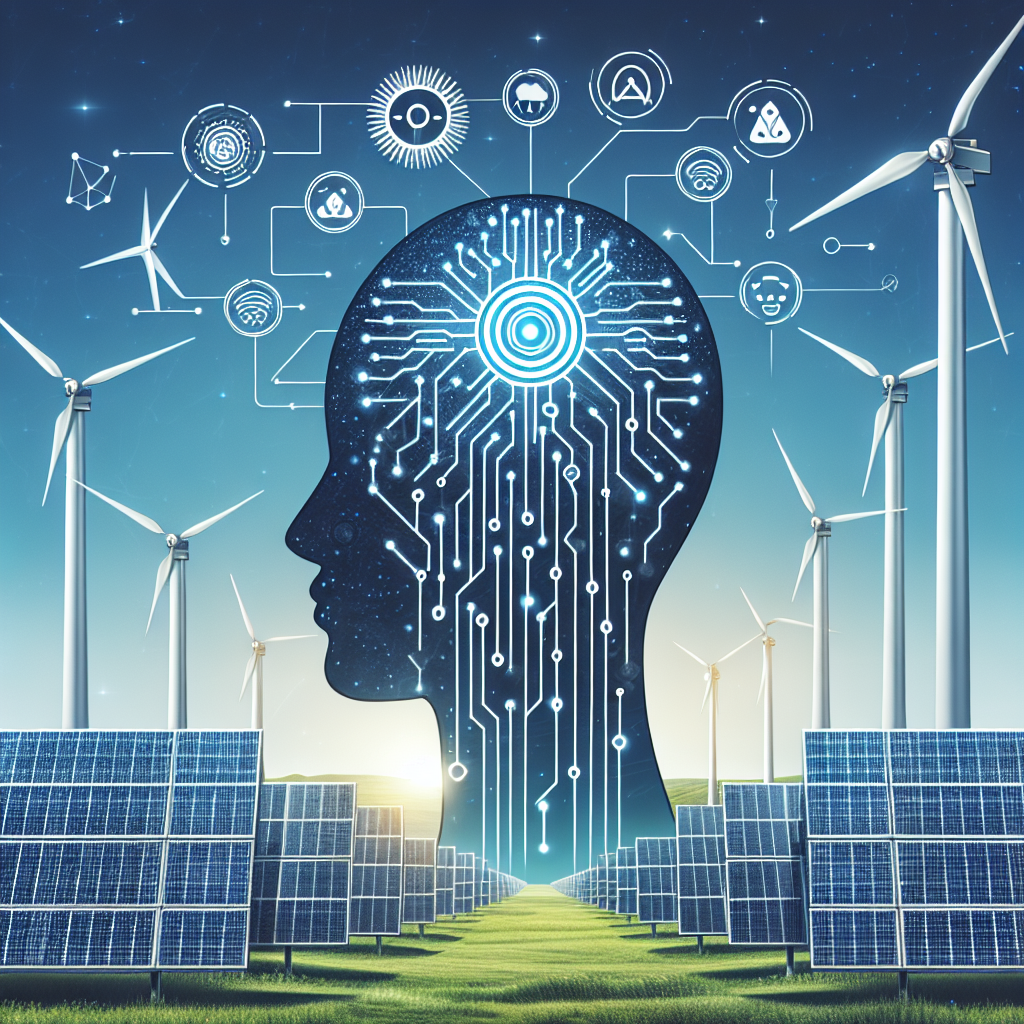In recent years, the renewable energy sector has seen significant growth as the world shifts towards more sustainable sources of power. Advances in technology, particularly in the field of artificial intelligence (AI), have played a crucial role in increasing the efficiency and effectiveness of renewable energy systems. By integrating AI into renewable energy infrastructure, companies and governments can improve the performance, reliability, and cost-effectiveness of their renewable energy projects.
One of the key benefits of integrating AI into renewable energy systems is its ability to optimize energy production. AI algorithms can analyze vast amounts of data in real-time to predict energy demand, optimize energy storage, and adjust power generation to match supply and demand. This predictive capability allows renewable energy systems to operate more efficiently, reducing waste and maximizing output.
AI can also improve the reliability and resilience of renewable energy systems. By constantly monitoring and analyzing data, AI can detect and diagnose issues before they escalate into costly and disruptive failures. This proactive maintenance approach can help prevent downtime and ensure that renewable energy systems operate at peak performance levels.
Furthermore, AI can enhance the integration of renewable energy into the existing power grid. As renewable energy sources like solar and wind are intermittent, AI can help predict when and where energy will be generated and consumed, allowing for better grid management and coordination. This can help reduce the reliance on fossil fuels and increase the overall stability of the grid.
Another significant advantage of integrating AI into renewable energy systems is its ability to reduce costs. AI can help optimize energy production, maintenance schedules, and resource allocation, leading to lower operating expenses and increased profitability for renewable energy projects. Additionally, AI can help identify opportunities for efficiency improvements and cost savings, such as optimizing energy storage, reducing energy waste, and minimizing downtime.
Overall, the integration of AI into renewable energy systems can lead to increased efficiency, reliability, and cost-effectiveness, making renewable energy a more attractive and viable option for meeting the world’s energy needs.
FAQs:
Q: How does AI help optimize energy production in renewable energy systems?
A: AI algorithms can analyze data in real-time to predict energy demand, optimize energy storage, and adjust power generation to match supply and demand. This predictive capability allows renewable energy systems to operate more efficiently, reducing waste and maximizing output.
Q: How can AI improve the reliability of renewable energy systems?
A: AI can constantly monitor and analyze data to detect and diagnose issues before they escalate into costly and disruptive failures. This proactive maintenance approach can help prevent downtime and ensure that renewable energy systems operate at peak performance levels.
Q: How does AI help integrate renewable energy into the power grid?
A: AI can help predict when and where energy will be generated and consumed, allowing for better grid management and coordination. This can help reduce the reliance on fossil fuels and increase the overall stability of the grid.
Q: How can AI reduce costs in renewable energy projects?
A: AI can help optimize energy production, maintenance schedules, and resource allocation, leading to lower operating expenses and increased profitability for renewable energy projects. Additionally, AI can identify opportunities for efficiency improvements and cost savings.
In conclusion, the integration of AI into renewable energy systems offers numerous benefits, including increased efficiency, reliability, and cost-effectiveness. By leveraging AI technology, companies and governments can accelerate the transition to a more sustainable energy future and help mitigate the impacts of climate change.

